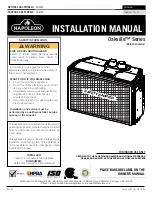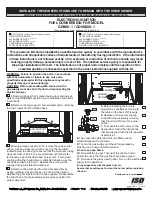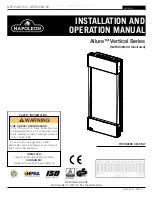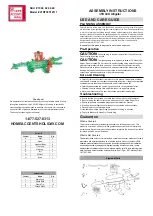
34 TALAS 29
Before You Ride
|
Setting Sag
|
Adjusting Rebound
|
Climb. Trail. Descend.
|
Adjusting Trail Mode
|
Adjusting TALAS Travel
|
Service Intervals
|
Important Safety Information
travel
•
5.5 in./140 mm
•
5.9 in./150 mm
TALAS 2-position travel adjust system, all
models
model
features,
adjustments
Factory FIT CTD with Trail Adjust; 140,
150
: Kashima coated or hard anodized
upper tubes, 1.5" tapered steerer, lever
actuated 3-position Climb/Trail/Descend, 3-
position Trail Adjust, air spring pressure,
rebound
Factory FIT CTD Remote; 140, 150
:
Kashima coated or hard anodized upper
tubes, 1.5" tapered steerer, remotely
actuated 3-position Climb/Trail/Descend,
air spring pressure, rebound
: Hard
anodized upper tubes, 1.5" tapered
steerer, lever actuated 3-position Climb/
Trail/Descend, air spring pressure, rebound
Evolution O/C CTD Remote; 140, 150
:
Hard anodized upper tubes, 1.5" tapered
steerer, remotely actuated 3-position
Climb/Trail/Descend, air spring pressure,
rebound
: Hard
anodized upper tubes, 1.5" tapered
steerer, lever actuated 3-position Climb/
Trail/Descend, air spring pressure, rebound
lower leg
options
•
15QR thru axle system, post style disc
brake mounting
spring
air
riding styles
trail, AM
Installing Your Fork
Be sure your fork is properly installed before proceeding
. If your fork came pre-installed on your bicycle, continue to the next section.
Before You Ride
1. Check that quick-release levers are properly adjusted and tightened.
2. Clean the outside of your fork with only mild soap and water, and wipe dry with a soft dry rag.
NOTE:
Do not use any solvents or de-greasers, as these products can cause serious damage to
paint and anodized parts (upper tubes, knobs, steerers).
Do not spray water directly on the seal/upper tube junction.
Do not use a
on your fork.
3. Inspect the entire exterior of your fork. The fork should not be used if any of the exterior parts appear to be damaged.
or
for further inspection and repair.
4. Check your headset adjustment. If loose, adjust it accordingly to your bicycle manufacturer's recommendations.
5. Check that all brake cables or hoses are properly fastened.
6. Test the proper operation of your front and rear brakes on level ground.
Setting Sag
To get the best performance from your fork, it is necessary to set the
proper air spring pressure by adjusting sag
. Generally, sag should be set to 15–25% of total fork travel.
1. Unscrew the center blue aircap in the middle of the TALAS travel adjusting topcap on top of the left fork leg (shown below), to expose the Schrader valve.
TIP:
Hold the TALAS lever steady with one
hand while unscrewing the aircap with the other.
2. Set the TALAS lever to the long travel position, turn off lockout and cycle the fork a few times.
NOTE:
For the best TALAS performance, always set sag in the long travel position. Sag and spring
rate will automatically readjust when you change to different travel settings.
3. Attach a
FOX Racing Shox High Pressure Pump
to the Schrader valve.
4. Pump your fork to the appropriate setting from the
Suggested Air Spring Pressure Settings
table below, then remove the pump.
5. Unless your fork already has a sag setting o-ring on an upper tube, install a zip tie to an upper tube. Slide the o-ring or the zip tie down against the scraper lip of the fork dust seal.
6. Make sure your fork lockout is not engaged.
7. Dressed to ride, position your bike next to a wall or table to support yourself. Without bouncing, mount your bicycle. Assume a normal riding position for at least 30 seconds, allowing the suspension to
fully settle.
8. Dismount your bike without bouncing downward, without further moving the o-ring or zip tie. Measure the distance between the seal and the zip tie. This measurement is your sag value.
9. Compare your actual sag value to your target sag value in the
Sag Setup
table below.
If your sag value is less than the table value
, screw on the pump
fi
tting, note the current air pressure setting and depress the black bleed-valve to reduce the gauge pressure by 5 psi. Measure sag
again and repeat this adjustment, if necessary.
If your sag value is greater than the table value
, screw on the pump
fi
tting, note the current air pressure setting and pump to increase the gauge pressure by 5 psi. Measure sag again and repeat this
adjustment if necessary.
10. Screw the blue aircap back on, and go ride.
11. Rider
Weight
lbs.
12. Suggested Air Spring Pressure Settings
PSI
13. 140 mm
14. 150 mm
15.
≤
125
16. 45
17. 40
18. 125 - 135
19. 50
20. 45
21. 135 - 145
22. 55
23. 50
24. 145 - 155
25. 65
26. 60
27. 155 - 170
28. 70
29. 65
30. 170 - 185
31. 75
32. 70
33. 185 - 200
34. 80
35. 80
36. 200 - 215
37. 90
38. 90
39. 215 - 230
40. 100
41. 100
42. 230 -
≥
250
43. 110
44. 110
45.
46.
Sag Setup
47. Travel
48. XC/Race FIRM
49. All-Mountain PLUSH
50. 140 mm (5.5")
51. 21 mm (0.83")
52. 35 mm (1.38")
53.
54.
Sag Troubleshooting
55. Symptom
56. Remedy
57. Too much sag
58. (+) air pressure in 5 psi increments
59. Too little sag
60. (-) air pressure in 5 psi increments
61. Excessive bottoming
62. (+) air pressure in 5 psi increments
63. Harsh ride; full travel not utilized
64. (-) air pressure in 5 psi increments






















